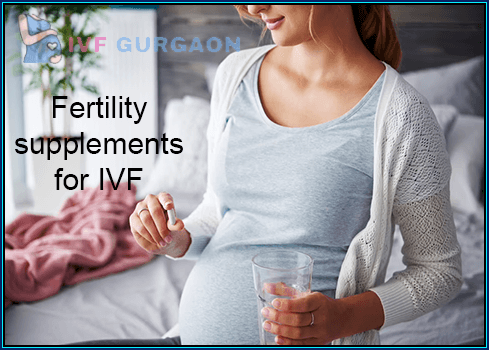
In vitro fertilization (IVF) is a popular assisted reproductive technology used to help couples struggling with infertility to conceive. While IVF can be an effective option for many couples, there are several factors that can affect the success of the procedure, including the woman’s overall health and nutritional status. In this blog, we’ll discuss some of the best fertility supplements for women undergoing IVF treatment.
Folic acid is an important nutrient that has been shown to support healthy fetal development and reduce the risk of birth defects. It is also essential for healthy egg production and implantation. Women who are undergoing IVF treatment are often advised to take a daily folic acid supplement of at least 400-800 micrograms.

Coenzyme Q10, or CoQ10, is an antioxidant that is naturally produced in the body. It plays a key role in energy production and has been shown to support healthy egg quality and embryo development. Some studies have also suggested that CoQ10 may help to improve IVF success rates in older women.

Omega-3 fatty acids, such as those found in fish oil supplements, are essential for overall health and wellbeing. They have been shown to support healthy hormone levels, improve egg quality, and reduce inflammation in the body. Women undergoing IVF treatment may benefit from taking a daily omega-3 supplement of 1000-2000 milligrams.
Vitamin D is an important nutrient that supports healthy bone and immune system function. It has also been shown to play a role in fertility and may help to improve IVF success rates. Women undergoing IVF treatment may be advised to take a daily vitamin D supplement of 1000-2000 international units.
Myo-inositol is a naturally occurring compound that has been shown to support healthy ovulation and improve egg quality. It may also help to reduce insulin resistance, which can be a contributing factor to infertility in some women. Women undergoing IVF treatment may benefit from taking a daily myo-inositol supplement of 2000-4000 milligrams.
Fertility supplements can be a useful tool for women undergoing IVF treatment, as they can help to support healthy egg production, improve embryo development, and increase the chances of a successful pregnancy. However, it’s important to speak with a fertility specialist before taking any new supplements, as some may interact with other medications or have unwanted side effects. With the right guidance and support, you can make informed decisions about your fertility journey and increase your chances of a successful IVF outcome.